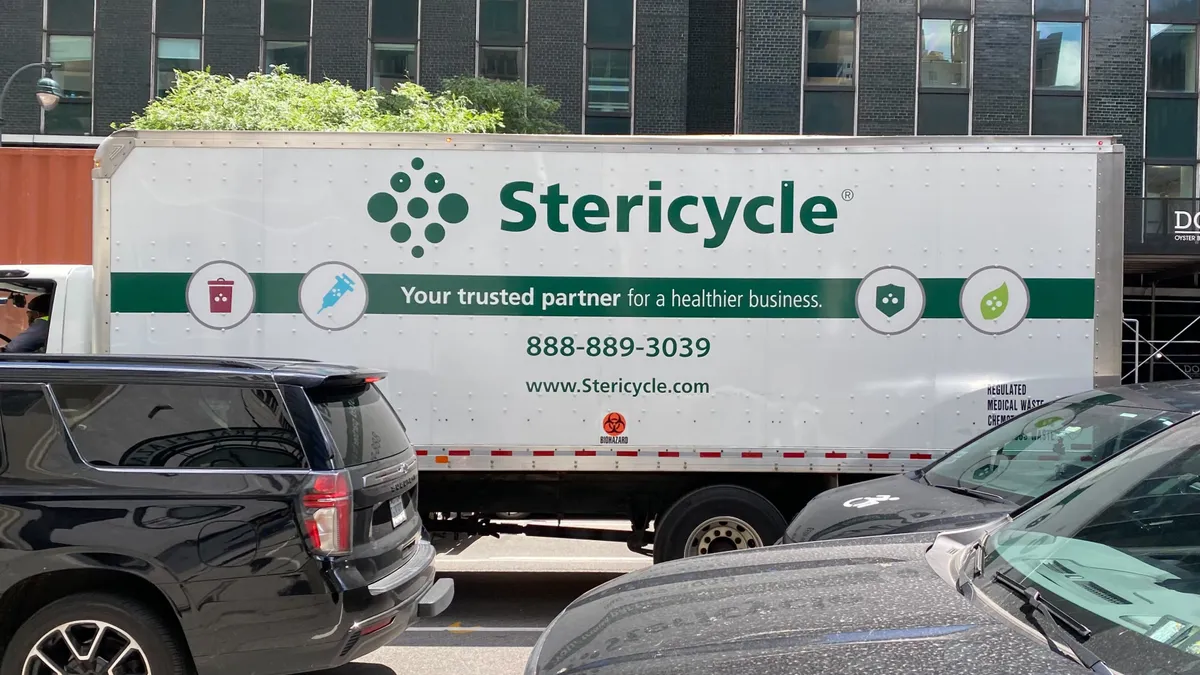Boise, Idaho's recycling program is undergoing changes — and some short-term stresses in its plastics collection program — for what officials describe as long-term improvements.
In April 2018, Boise joined the Hefty EnergyBag program, through which about 73,000 households fill special orange plastic bags with #4-7 plastics for commingled curbside collection. The bags are separated out at MRFs and go to Renewlogy in Salt Lake City, Utah for conversion into synthetic fuels. According to Colin Hickman, communication manager for Boise's Public Works Department, the plastics are taken at "essentially at no cost."
The program has collected nearly 350 tons so far, which officials describe as a large number because the plastics are so light. But lately, that material has begun to pile up. While similar challenges with low-value plastics (due to commodity markets) were an issue for Boise in the past, the city isn't worried this time.
Program on pause
During the first quarter of this year, Renewlogy "took a pause," Hickman said, to upgrade the preprocessing equipment at its Utah facility.
"The reason we're doing this is to be able to handle more of these materials in the future ... [and] to process it more efficiently," Priyanka Bakaya, Renewlogy's founder and CEO, told Waste Dive. "We want to make the pre-processing optimized."
Renewlogy and Omaha, Nebraska-based Firstar Fiber recently entered an agreement to expand the amount of materials sent to Renewlogy through the EnergyBag program. Renewlogy will receive a grant to help with equipment upgrades and expand its staff to meet the needs for the higher volume of plastic expected to be collected. The agreement also opens the door to expanding the program to additional cities in the coming years.
Boise and other communities were asked not to send materials to the Renewlogy facility until the upgrades are complete. The city suggests that could be sometime in January or February, although Bakaya noted, "that's our conservative estimate."
The plastic-filled EnergyBags are still being collected in Boise's curbside program. Public Works says it's important to continue collecting the material rather than risking customer confusion and difficulty restarting the program if plastics recycling were suspended.
The city estimates it has been holding two large truckloads — about 40 tons — of bagged material until the Renewlogy facility reopens. Public Works indicates this isn't unusual and said it's prepared to store material for an extended period of time.
"We're always storing material; there's never been a time since the program started that we haven't had some material stored," said Peter McCullough, Boise's materials management programs manager.
In the meantime, Hefty EnergyBag program partner Dow is assisting with identifying unspecified end markets for the collected plastics, and some shipments have already gone out.
Plus, Bakaya said, Renewlogy is still accepting very small amounts of EnergyBags from some customers to run through the upgraded equipment for testing.
Developing the capability to handle other types of plastics — #1s, for example, are a major source of contamination in the program — is a big focus of the upgrade.
"Right now with the Boise program, people are putting all types of plastic in the bag and they've been told to put in only certain types. We want to be able to handle anything consumers are putting in ... We want to design the front and the back end to be able to handle any types of plastics," Bakaya said."
Boise Public Works representatives indicate that while they're tracking data, it's still too early to draw definitive conclusions about the program's success. Anecdotally, they have noticed fewer incidents with plastic bags or wraps becoming entangled in MRF equipment.
Improvements through education
Boise is also implementing new educational campaigns in the hopes of reducing contamination.
Commingled recycling systems have "made it so easy for so long for people to throw everything into one cart," Hickman said. Now, he said, contamination issues highlighted by market changes have been "a wake-up call to a lot of Boiseans."
In addition to encouraging better recycling practices, the city is promoting overall waste reduction.
"The compost program has been a huge success in reducing a lot of waste that would be sent to landfill. We don't want to lose sight of the fact that program has reduced our waste significantly," McCullough said.
The city has also challenged residents to commit to using fewer single-use plastics — bags, water bottles, straws, cutlery and food/drink containers — throughout July.
Public Works also touted its recently launched Curb It Pros program as a success. An initial 25 volunteers were trained to help educate their fellow residents about recycling and waste reduction at community events, with hundreds of interactions already completed to date. The program has been especially helpful in educating people about the complexities of the EnergyBag program.
"There are many questions that people have about plastics, and answers are difficult to convey in a pamphlet or radio ad," said Natalie Monro, Public Works communication coordinator. "[Curb It Pros] has made a pretty big difference in us being able to interact with people and educate people about how our recycling actually works."
Boise expects to evaluate the program next year along with its overall waste reduction strategies. And despite so many recycling program alterations occurring at once, McCullough is optimistic.
"I think our public has been doing a great job," he said.
Correction: A previous version of this article inaccurately named Dow as the manufacturer of Hefty EnergyBags. Reynolds Consumer Products is the manufacturer.


















